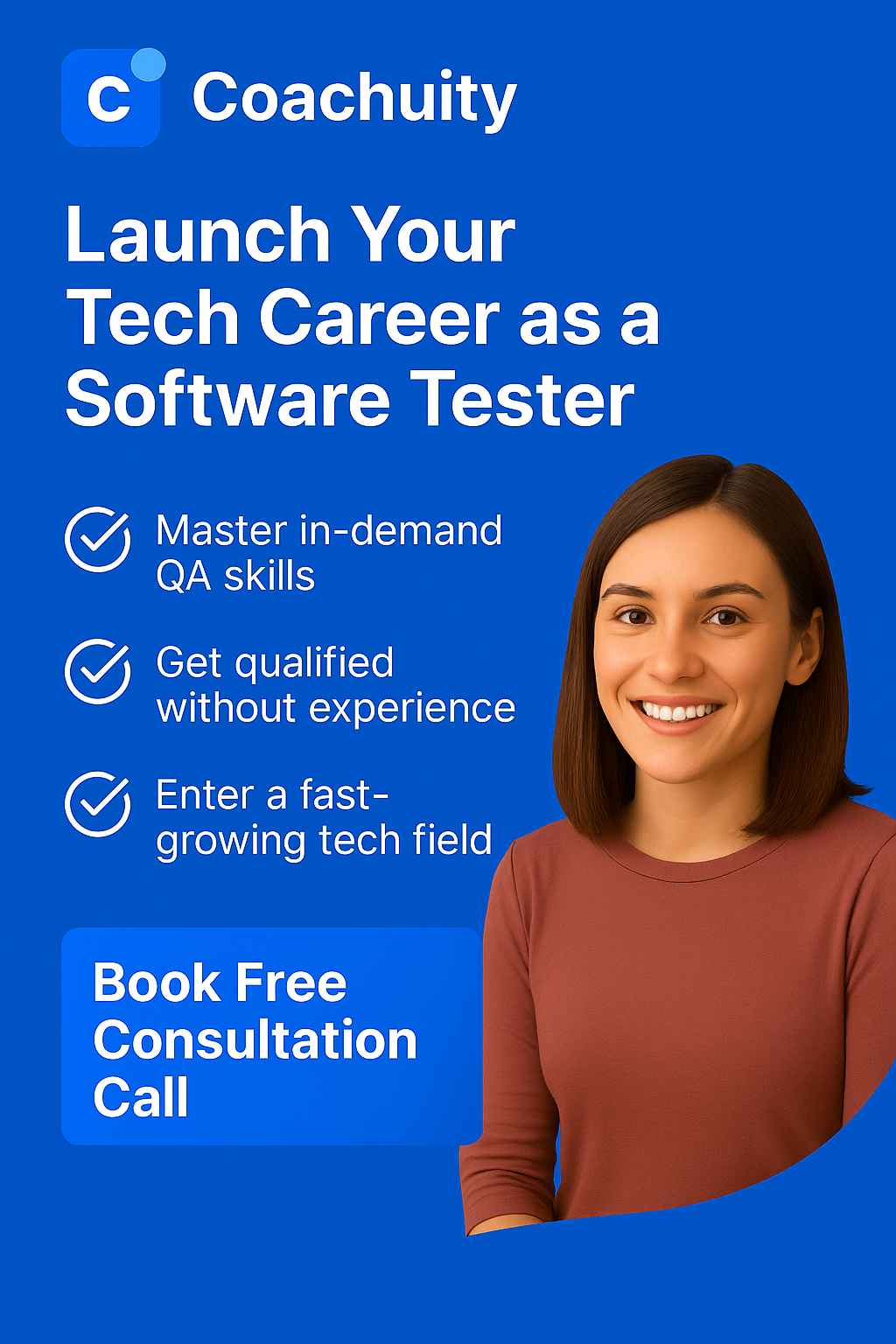
How to Become a Software Tester With No Experience: Your Step-by-Step Guide
![]() April 11, 2025
April 11, 2025
If you’ve ever wondered whether it’s possible to become a software tester with no experience, the answer is a resounding yes. In today’s fast-growing tech industry, companies are constantly on the lookout for fresh talent who can ensure their products work flawlessly before they reach customers. Software testing—also known as Quality Assurance (QA)—is one of the most accessible entry points into tech, and it offers a clear career path, competitive salaries, and remote work opportunities. Whether you’re a recent graduate, looking to switch careers, or simply intrigued by the tech world but not sure where to start, software testing could be your ticket to a stable, rewarding profession. And the best part? You don’t need a computer science degree or prior IT experience to break in—you just need the right training, mentorship, and support. Before we dive into how to start, let’s look at why software testing is such a popular career move, especially for those starting from scratch: High Demand: Every app, website, and piece of software needs to be tested before launch. This creates a constant demand for skilled testers worldwide. Good Earning Potential: Entry-level QA testers often earn above-average starting salaries, with scope for rapid progression into senior and specialised roles. Clear Career Path: You can move from manual testing to automation testing, QA lead roles, or even software development. Flexible Work Options: Many testing roles offer hybrid or fully remote work, making it ideal if you want work-life balance. No Degree Barrier: Skills matter more than a formal background. Employers value trained testers who can deliver results. If you’re starting from zero, your main hurdle will be proving to employers that you have the skills to do the job. While you might not yet have commercial experience, you can build a strong portfolio and gain practical, hands-on expertise through the right training program. That’s exactly where our Software Testing Training & Mentorship Program comes in. Our program is designed for complete beginners who want to become job-ready software testers in months, not years. It combines industry-led teaching, practical projects, one-to-one mentorship, and career placement support so you can step confidently into your first role. You’ll get a comprehensive foundation in both manual testing and automation testing, with real-world exercises and case studies. Manual Testing Fundamentals: Understanding test plans, test cases, defect life cycle, and software development models. Automation Tools: Hands-on experience with tools like Selenium, Postman, and JIRA. Agile Methodologies: How testers work in Scrum teams, participate in sprints, and collaborate with developers. Bug Reporting & Tracking: Writing clear, detailed defect reports that developers can act on. Testing Types: Functional, regression, performance, and usability testing. Industry Standards: Best practices for QA documentation, version control, and test environments. We believe that personal guidance is the fastest way to grow. That’s why every student is matched with an experienced software tester who has worked on real commercial projects. Your mentor will: Review your assignments and give detailed feedback. Help you understand tricky concepts and testing scenarios. Share insider tips on workplace expectations and workflows. Conduct mock interviews to prepare you for real ones. Rather than just learning theory, you’ll work on live-simulated projects that mimic real QA environments. This means: Testing a real application from start to finish. Creating professional-level test plans and reports. Presenting your findings as you would in a job setting. By the end, you’ll have a portfolio you can show employers—even without prior work history. Once you’ve completed the program, our career support team steps in to help you secure your first role: CV & LinkedIn Optimisation: Highlighting your new skills so you stand out to recruiters. Job Application Guidance: Matching you with roles suited to your strengths and location preferences. Interview Preparation: Practising common QA interview questions and scenarios. Employer Introductions: Connecting you with our partner companies who hire entry-level testers. We’ve helped people from all walks of life break into software testing—even those who had never written a single line of code before joining. Priya, 27 – From Retail to QA Analyst James, 34 – Career Change After Redundancy With focused training, you can be ready for entry-level QA roles in as little as 3–6 months. The exact timeline depends on your availability, but our flexible structure means you can learn part-time or full-time. Even outside the program, here are some ways you can speed up your entry into the field: Practise on Free Tools: Download open-source applications and practise writing your own test cases. Join QA Communities: Network with other testers on LinkedIn or in online forums. Follow Industry Blogs: Stay updated on trends in automation, AI testing, and QA methodologies. Work on Soft Skills: Communication, problem-solving, and attention to detail are just as important as technical know-how. The software industry is only getting bigger. Every app you use, from online banking to food delivery, relies on testers to ensure it works properly. With automation expanding but not replacing human QA roles, skilled testers are in high demand. If you start training now, you could be interviewing for your first role in just a few months. Starting a career in software testing without experience might seem daunting, but with the right training, mentorship, and portfolio, you can position yourself as a strong candidate from day one. Our Software Testing Training & Mentorship Program is built to guide you every step of the way—from your first lesson to your first job offer. We don’t just teach you how to test software; we prepare you to launch a sustainable, well-paid career in tech. Ready to make the change?How to Become a Software Tester With No Experience: Your Step-by-Step Guide
Why Software Testing Is a Great Career Choice for Beginners
The Challenge of Starting With No Experience
The Training Program: Learn, Practise, and Get Hired
1. Skills You’ll Learn
2. Mentorship That Accelerates Learning
3. Portfolio-Building Projects
4. Placement Support
Success Stories From Our Graduates
"I was working in retail and had no IT background. The course gave me a clear path to follow, and the mentorship was incredible. Within two weeks of finishing, I landed my first QA role in a fintech company. I now work remotely and love the work I do every day."
"After losing my job during the pandemic, I wanted something more future-proof. The live projects helped me understand exactly what the job involves. The placement support team even arranged my first interview, which turned into a job offer."How Long Does It Take to Become a Software Tester With No Experience?
Tips for Breaking Into Software Testing Faster
Why Now Is the Best Time to Start
Take the First Step Toward Your New Career
Click here to enrol today and start your journey toward becoming a confident, job-ready software tester—no experience required.
